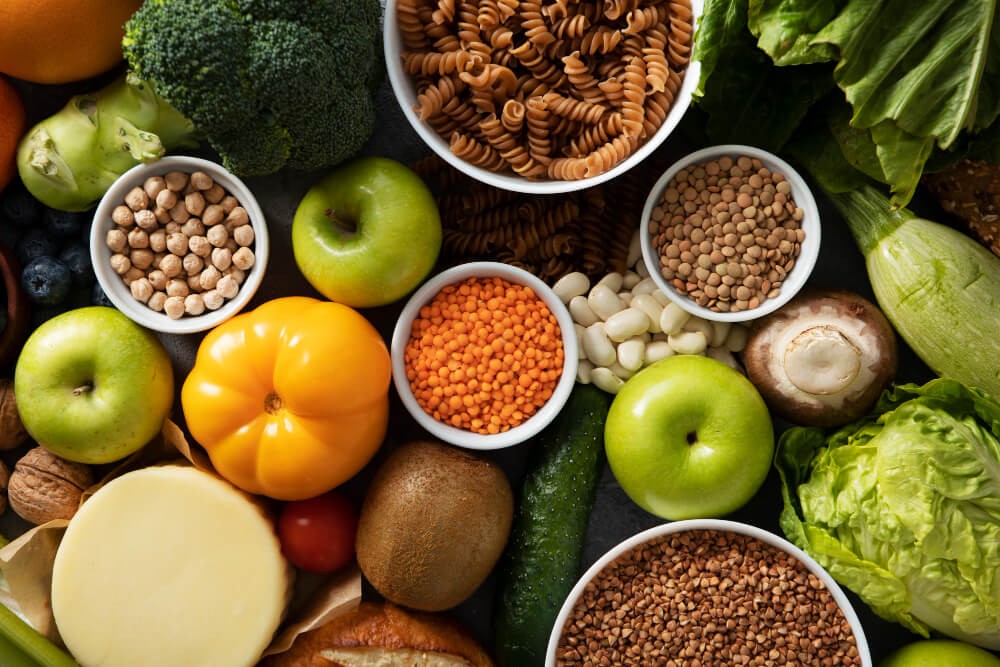Most weight loss diets involve restricting certain foods, but the intuitive eating method allows you to eat freely without suppressing hunger, avoiding food groups, or feeling miserable. How does this approach work, and what are its benefits and potential drawbacks? Let’s explore further.
What Is the Intuitive Eating Method?
Traditional diets often require limiting specific types of food or sticking to strict eating schedules. Intuitive eating, on the other hand, encourages you to listen to your body’s hunger and fullness cues, avoiding the stress of constant restrictions.
In intuitive eating, foods are not labeled as “bad” for the diet, and there’s no guilt or shame after indulging. However, this doesn't mean you're free to eat anything without regard for your health. The goal is to honor your body’s natural signals about hunger and satiety, allowing you to choose foods mindfully.
This approach is less about achieving a specific weight and more focused on maintaining a diet that supports both physical and mental well-being.
Principles of Intuitive Eating
The term "intuitive eating" was first introduced in 1995 by Evelyn Tribole and Elyse Resch in their book, but the concept has been around longer. The key idea is recognizing the difference between physical and emotional hunger.
In intuitive eating, you pay closer attention to your body’s needs and the rational signals it sends about food. Here are the core principles:
Reject Strict Diets
Strict dieting rules are often unsustainable in the long term. By restricting food, you may deprive your body of essential nutrients. In some cases, this can even lead to disordered eating behaviors.
Eat When You're Hungry
Listen to your body’s hunger signals. Delaying meals until you're starving often leads to overeating. Opt for nutrient-rich foods that satisfy your body's needs when hunger strikes.
Notice When You're Full
Pay attention to your body’s cues when you’re full. Stop eating when you feel satisfied, not stuffed. Savor every bite, and enjoy the taste and texture of the food. When you feel content while eating, it’s a sign that your body has had enough.
Choose Foods That Make You Happy
Intuitive eating encourages a pleasurable eating experience. Choose foods that taste good and bring you joy. Restricting certain foods can lead to cravings and overeating, so moderation is key.
Avoid Emotional Eating
Emotional eating often stems from feelings like stress, boredom, or anxiety. This habit can lead to overeating and weight gain. If emotional eating is a recurring problem, consider seeking help from a therapist to manage your emotions in healthier ways.
Intuitive eating is designed to nurture a healthy relationship with food while meeting your body’s needs. While it may not result in rapid weight loss, it can help maintain a stable body mass index and promote better mental health.
If you're considering trying intuitive eating, consulting with a doctor or nutritionist is recommended. You can also use the consultation feature on the Ai Care app, available on the App Store or Play Store.
Looking for more nutrition tips and diet advice? Click here!
- dr Nadia Opmalina
Sreenivas, S. (2023). What Is Intuitive Eating. Available from: https://www.webmd.com/diet/what-is-intuitive-eating
British Heart Foundation. 10 principles of intuitive eating. Available from: https://www.bhf.org.uk/informationsupport/heart-matters-magazine/nutrition/weight/intuitive-eating/10-principles-of-intuitive-eating
Jennings, K. (2023). A Quick Guide to Intuitive Eating. Available from: https://www.healthline.com/nutrition/quick-guide-intuitive-eating
MacMillan, A. (2023). What Is Intuitive Eating. Available from: https://www.health.com/nutrition/intuitive-eating












